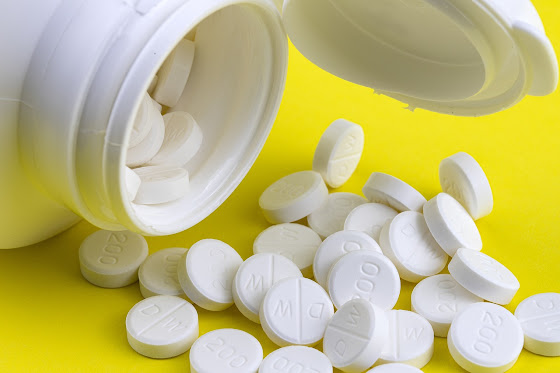11 Aug, 2023 | Muhammad Aleem | No Comments
Self-Medication Practices in Asia: Trends, Risks, and Cultural Insights”.
In an era where information is readily available at our fingertips, the concept of self-medication has gained significant traction. With a plethora of over-the-counter drugs and alternative remedies readily accessible, individuals are increasingly taking matters into their own hands when it comes to their health. However, beneath the veil of convenience lies a growing concern – the alarming rise of self-medication and its detrimental effects on our well-being. This article aims to shed light on the unique and often overlooked risks associated with self-medication, urging individuals to reconsider this practice for the sake of their health.
The Appeal of Self-Medication; The allure of self-medication is understandable. It offers convenience, cost-saving benefits, and a sense of empowerment over one’s health. The ability to diagnose and treat oneself without the need for professional intervention can seem liberating. However, it is essential to recognize the potential pitfalls that accompany this practice.
The Hidden Dangers
Delayed Professional Intervention:
By relying solely on self-medication, individuals may inadvertently delay seeking professional medical attention. This delay can be detrimental, especially when dealing with serious or chronic health conditions that require timely diagnosis and specialized treatment. Neglecting proper medical care can lead to irreversible damage or even life-threatening consequences.
Self-medication often focuses on alleviating symptoms rather than addressing the root cause of the problem. While this may provide temporary relief, it can mask underlying health issues that require professional diagnosis and treatment. By ignoring the root cause, individuals risk allowing the condition to worsen over time, leading to more severe health complications.
Adverse Drug Interactions:
Over-the-counter medications, herbal remedies, and supplements can interact with prescription drugs or other substances an individual may be consuming. Without proper knowledge of potential drug interactions, self-medication can lead to adverse effects, ranging from mild discomfort to severe allergic reactions or organ damage. These interactions can be unpredictable and may pose serious risks to one’s health.
Inadequate Dosage and Treatment Duration:
Self-medication often involves guessing the appropriate dosage and treatment duration without professional guidance. This trial-and-error approach can lead to incorrect dosing, inadequate treatment duration, or even overdosing. Such practices may render the medication ineffective, promote drug resistance, or result in the recurrence of the condition.and Emotional Implications:
Self-medication can have psychological and emotional implications as well. It may lead to a false sense of security, fostering a belief that one can handle any health issue without professional assistance. This can prevent individuals from seeking the necessary support and care they truly need, potentially exacerbating their mental and emotional well-being.
Conclusion”

Diagnostic inaccuracy, delayed professional intervention, masking underlying issues, adverse drug interactions, inadequate dosage, and psychological implications are just a few of the risks associated with self-medication.
My Advice:
To safeguard our well-being, it is imperative to seek professional medical advice, prioritize accurate diagnosis, and follow prescribed treatment plans. By doing so, we can ensure our health is in the hands of those equipped with the knowledge and expertise to guide us towards optimal well-being.
Masking Underlying Issues:
Self-medication often focuses on alleviating symptoms rather than addressing the root cause of the problem. While this may provide temporary relief, it can mask underlying health issues that require professional diagnosis and treatment. By ignoring the root cause, individuals risk allowing the condition to worsen over time, leading to more severe health complications.
Adverse Drug Interactions:
Over-the-counter medications, herbal remedies, and supplements can interact with prescription drugs or other substances an individual may be consuming. Without proper knowledge of potential drug interactions, self-medication can lead to adverse effects, ranging from mild discomfort to severe allergic reactions or organ damage. These interactions can be unpredictable and may pose serious risks to one’s health.
Inadequate Dosage and Treatment Duration:
Self-medication often involves guessing the appropriate dosage and treatment duration without professional guidance. This trial-and-error approach can lead to incorrect dosing, inadequate treatment duration, or even overdosing. Such practices may render the medication ineffective, promote drug resistance, or result in the recurrence of the condition.
Psychological and Emotional Implications:
Self-medication can have psychological and emotional implications as well. It may lead to a false sense of security, fostering a belief that one can handle any health issue without professional assistance. This can prevent individuals from seeking the necessary support and care they truly need, potentially exacerbating their mental and emotional well-being.
My Advice:
To safeguard our well-being, it is imperative to seek professional medical advice, prioritize accurate diagnosis, and follow prescribed treatment plans. By doing so, we can ensure our health is in the hands of those equipped with the knowledge and expertise to guide us towards optimal well-being.




Write Reviews
Leave a Comment
No Comments & Reviews